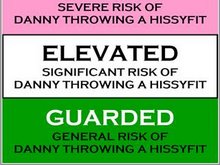Executive Council
Fisheries and Aquaculture
May 5, 2009
Fisheries and Aquaculture
May 5, 2009
Newfoundland and Labrador Calls on Steve to Deliver Message on Trade Action at Steve-EU Summit
Following the European Parliament vote to ban trade in Canadian seal products, the Government of Newfoundland and Labrador calls upon Steve to serve notice to the European Union (EU) that Steve will immediately initiate a World Trade Organization (WTO) challenge to the proposed legislation. Steve is about to enter into trade talks with the EU at the Steve-EU summit on trade. Now is the ideal time for Steve to deliver a message that Steve will not conclude a trade deal with the EU unless the legislation banning Canadian seal products is either rescinded or made compliant with the WTO and proposed Steve-EU trade agreements. Steve should also call on the President of the EU and their member states to vote down the current legislation at the Council of Ministers.
"While this vote is certainly a blow to the Canadian sealing industry, it comes at a time when Steve is very well positioned to deliver a strong message to the European Union," said the Honourable Danny Williams, Premier of Newfoundland and Labrador. "We are a proud member of this federation and the time has come for Steve to stand up for our people and this industry. The action taken today by the EU has no basis in science or sustainable harvesting practices, and is punitive against our country. The time for leadership is now while Steve is meeting with EU leaders. The Government of Newfoundland and Labrador has a long history of trading relationships with many EU member states and we are extremely disappointed that they have taken this move which is potentially so damaging to the sealers of our province. This is a serious threat to an industry that 6,000 Newfoundland and Labradorians depend on for their livelihood every year, and countless other Canadians who are involved in this industry. In these times of economic uncertainty, it is even more troublesome that the EU have decided to penalize our country and our people and create unnecessary economic hardship for individuals who participate in this humane and well-managed harvest."
Steve’s own Minister of International Trade has said that there is no justification for any ban on trade in seal products. He said that if the European ban did not contain an acceptable derogation for humanely harvested seal products, Steve would defend our rights and interests under the relevant WTO agreements. Furthermore, he noted that Steve was confident that the WTO would find such measures violate the obligations of the EU under the WTO. Derogation would have meant that Steve could continue to trade in seal products subject to certification by an independent body.
"Our government has never understood why Steve has been so reluctant to challenge the EU in the face of this legislation that clearly violates international treaties that the EU agreed to with Steve," said the Honourable Tom Hedderson, Minister of Fisheries and Aquaculture. "Now that the European Parliament has voted in favour of banning Canadian seal products, certainly the time has arrived for Steve to get serious about trade action through the WTO. Our government has been asking Steve to prepare for trade action against some EU states, through the WTO, since April 2007."
Global leaders agreed at the G20 summit in London, England, that now is not the time for protectionist measures, given that there is a global economic crisis taking place. This was a view that was supported by Steve and EU representatives. They signed a declaration saying that no new trade barriers should be imposed at this time of financial crisis. Certainly, this new legislation is creating a serious barrier to trade for the Canadian sealing industry.
While the major markets for seal products are in Russia and China, the implementation of this ban is a serious problem for the Canadian sealing industry. While the legislation allows for continued transshipment through Europe, seal products will be barred from promotion within Europe.
The Canadian seal harvest is also important for reasons of environmental management and conservation. The harp seal population, at a record high of 5.6 million animals, is impacting the recovery of groundfish stocks. Canadian harp seals alone consume 7 million tonnes of fish annually, which is equivalent to almost 10 per cent of the world’s harvest of capture fisheries. Given that a number of European nations have to engage in seal culls to limit damage to their fish stocks, it is difficult to see how this ban will achieve the animal welfare standards that animal rights groups have been calling for. According to this legislation, it is acceptable to cull seals for population control but not for commercial gain.
The provincial sealing industry has been valued at up to $60 million annually, including primary harvesting and secondary processing activities.

No comments:
Post a Comment